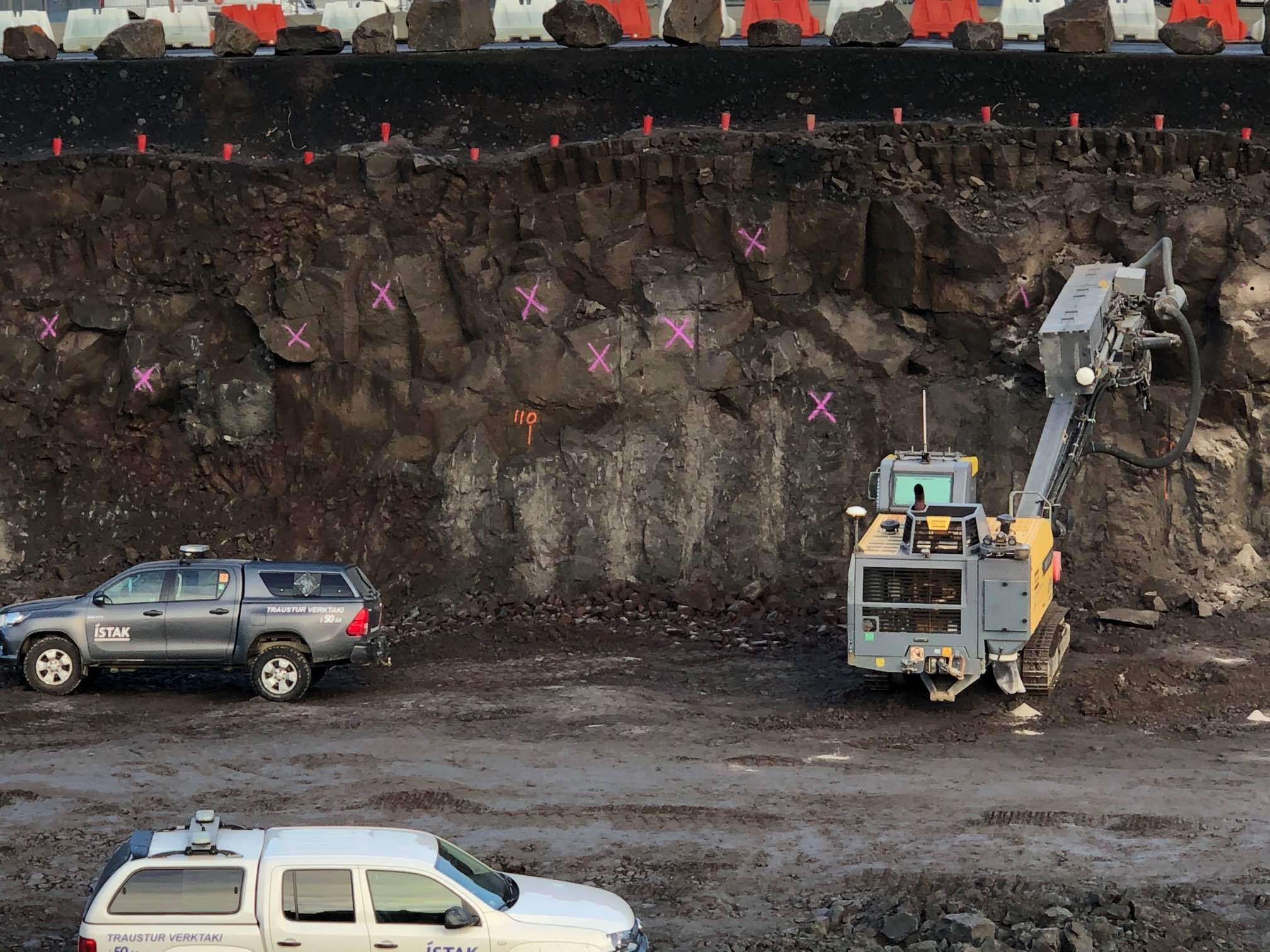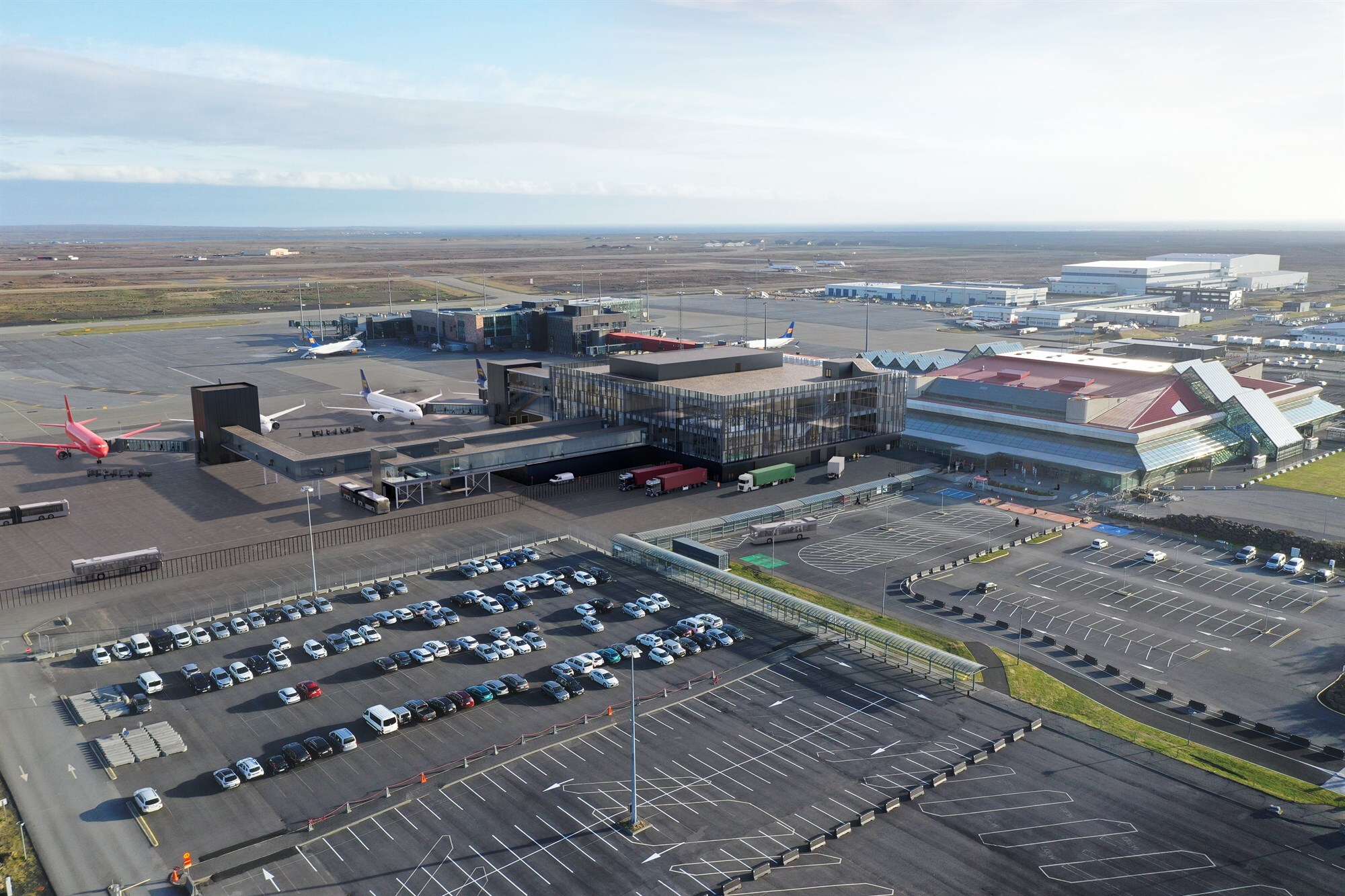The project
Keflavík Airport, also known as Reykjavík–Keflavík Airport, is the largest airport in Iceland and the country's main hub for international transportation and is located about 50 km southwest of Reykjavík. The airport has three runways, two of which are currently in use. Most international journeys to or from Iceland pass through this airport.
The terminal, "Leifur Erikson Air Terminal" was opened in April 1987 and separated the airport's civil traffic from the nearby military base. It was later extended with the opening of the South Building in 2001 to comply with the requirements of the Schengen Agreement. In 2007, the North Building was enlarged and completed, and in 2016, the current terminal was expanded.
Due to Iceland's international popularity the airport keeps growing and the number of passengers at Keflavik Airport is currently increasing every year. A new expansion of the ''Leifur Eiriksson Air Terminal'' east wing is therefore being constructed.
Construction of the new building has begun mid-2021 and is scheduled to be put into operation in 2024. The project is an important part of the airport's development plan to improve services to passengers and increase the airport's capacity.
Airports are always sensitive locations when it comes to (noise) emissions. Local residents are always vigilant with regards to noise and close engagement to all noise related activities helps avoiding noise nuisance and complaints. Due to the sensitivity of the area, automated continuous noise monitoring has been put into place by onsite local contractor Ístak to protect the surrounding areas during during the expansion of the earthworks for the new East wing.

Our client
Sonitus Systems has been working with on the project Ístak, which is an established Islandic contractor that handles diverse projects in several fields. These include construction projects of various kinds, power plants, heavy industry projects, earthworks, construction and harbour construction, as well as road and bridge construction.
Ístak has been a leader in the Icelandic contractor market for more than half a century and has had a major impact on the development of buildings and other structures, both in Iceland and abroad.
Environmental Monitoring
The large scale of this urban construction project has a major environmental impact on occupants of residential, commercial and public buildings.
One way of keeping control of noise emissions from construction activities is continuous environmental monitoring which will identify excessive noise levels.
Four EM2030 environmental noise monitors have been installed around the perimeter of the site in 2021 to make sure noise emissions are monitored, controlled and brought down to a minimum.
The four systems provide continuous and reliable data which is uploaded to the online cloud platform and project managers will be notified via email & SMS text alerts when noise levels exceed the agreed limits or when working hours and quite times are not honoured.

EM2030 Sound Level Monitor
The EM2030 is intended for use in situations where users need reliable measurements with the minimum amount of effort.
The kit consists of a rugged measurement unit, weatherproof outdoor microphone, a microphone mounting stand with a cable and a mains power supply. For colder environments like Iceland, there is also an optional microphone heater to ensure consistent performance in all conditions.
Project outcome
The combination of a responsible contractor and reliable equipment allowed the project to progress smoothly without disruption from noise complaints or out of hours work. The automated reporting tools provided by Sonitus Systems meant that the Istak team could get on with their core business while their environmental compliance checks were fully automated.
Although several of the Sonitus Systems volunteered to give personal onsite service to the Istak team by visiting Iceland, the EM2030 proved to be too reliable and the project was completed without a hitch.
More information
Visit the below websites to discover more;


